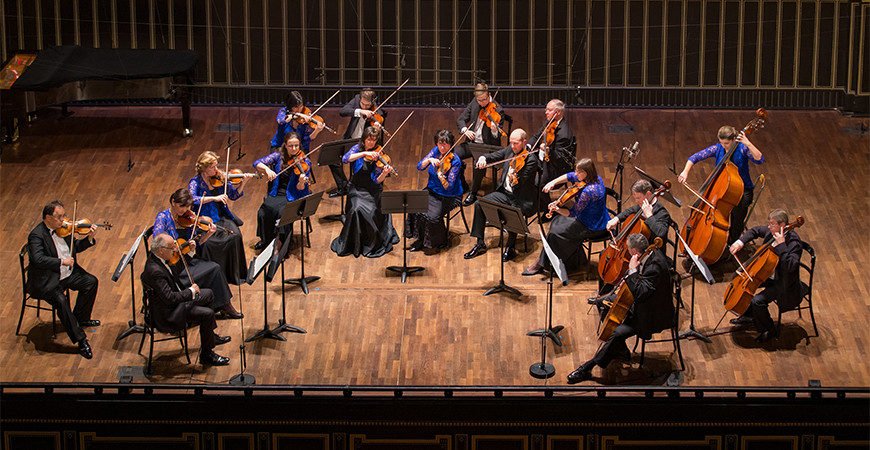
11 March 2020, 19.30-22.00
Grand Hall
The Budapest Strings Chamber Orchestra & László Fenyő
Beethoven: String Quartet No. 4 in C minor, Op. 18/4
Tchaikovsky: Variations on a Rococo Theme, Op. 33
Tchaikovsky: Pezzo capriccioso, Op. 62
INTERMISSION
Tchaikovsky: Serenade for Strings, Op. 48
László Fenyő (cello)
The Budapest Strings Chamber Orchestra (concertmaster: János Pilz, artistic director: Károly Botvay)
László Fenyő plays two gems of the cello repertoire, Tchaikovsky’s Pezzo capriccioso and Rococo Variations. Wilhelm Fitzenhagen, a contemporary of the composer and commissioner of the work, presented the latter with numerous modifications, and it eventually became popular in his version. In fact, this version generally features on invitations to international cello competitions. Although the original composer’s intention has long been known, the world’s leading cellists only recently turned to the original form of the Tchaikovsky composition. We are keeping it a secret which version László Fenyő chooses! ▪ The Tchaikovsky serenade performed in the second half of the concert is one of the composer’s most original, most multi-hued compositions, so it is not by chance that it holds a primary position amongst 19th century string orchestral works.
Presented by
Budapest Strings Chamber Orchestra
Tickets:
HUF 2 800, 3 800, 4 800, 5 800


